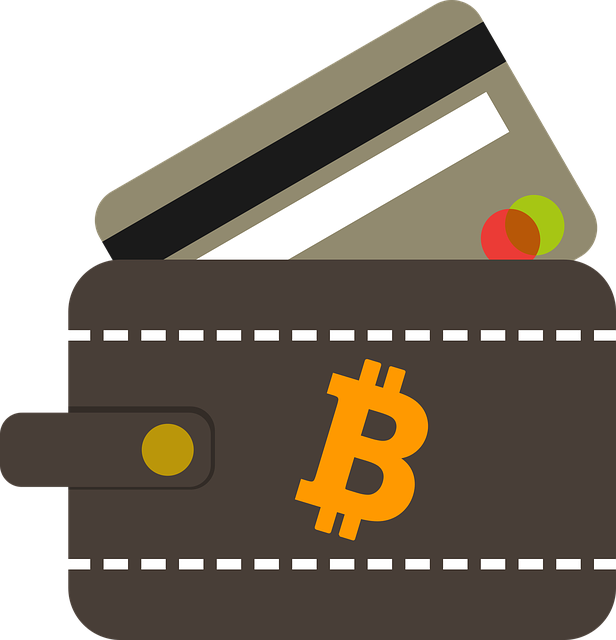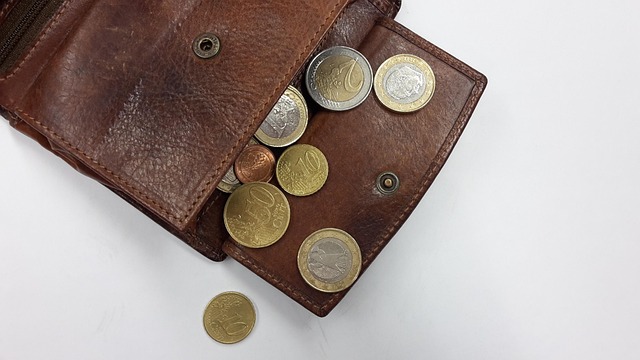Understanding Crypto Wallets: A Comprehensive Guide
Author: Jameson Richman Expert
Published On: 2025-05-19
Prepared by Jameson Richman and our team of experts with over a decade of experience in cryptocurrency and digital asset analysis. Learn more about us.
When it comes to securing and managing your cryptocurrency assets, understanding crypto wallets is essential. Crypto wallets are tools that allow users to store, send, and receive digital currencies like Bitcoin, Ethereum, and many others. In this comprehensive guide, we will delve into the different types of crypto wallets, their functionalities, and the best practices for securing your crypto assets. Whether you're a beginner or an experienced trader, this article aims to provide valuable insights into the world of crypto wallets.

Types of Crypto Wallets
To start, it’s important to know that there are primarily two categories of crypto wallets: hot wallets and cold wallets. Each category has its unique advantages and disadvantages that cater to different user needs.
- Hot Wallets: These wallets are connected to the internet, making them user-friendly and suitable for everyday transactions. They allow for quick access to your funds, making them ideal for active traders. Examples include mobile wallets like Trust Wallet and web wallets like MetaMask. However, their online nature makes them more vulnerable to hacking attempts and phishing scams. Users should exercise caution and implement additional security measures such as enabling two-factor authentication (2FA). Some hot wallets also provide built-in exchange features, allowing users to swap between different cryptocurrencies directly within the app. Additionally, many hot wallets are designed with user experience in mind, often featuring intuitive interfaces and easy navigation that enhance the overall trading experience.
- Cold Wallets: Cold wallets are offline storage options that offer increased security, making them ideal for long-term holding of cryptocurrencies. They can be hardware wallets like Ledger and Trezor or even paper wallets, which involve printing your private keys. Cold wallets are less convenient for frequent transactions but are significantly safer from online threats. For long-term investors, cold wallets are often recommended due to their enhanced security features. Hardware wallets come with recovery phrases that enable users to regain access to their funds in case the device is lost or damaged. Furthermore, cold wallets often include additional security measures such as biometric authentication and secure chip technology, making them one of the safest options available for crypto storage.
How Crypto Wallets Work
The primary function of a crypto wallet is to store your private keys, which are crucial for accessing your cryptocurrencies. Without these private keys, you won't be able to access your funds, highlighting the importance of choosing a reliable wallet. Most wallets also allow users to create a public address, which can be shared with others for receiving funds. It's essential to back up your wallet regularly to avoid losing access to your assets in case of device failure or loss. A backup can include saving your recovery phrase securely and ensuring that all your wallet data is stored safely. Additionally, some wallets offer features like seed phrase recovery, which can help restore access to your funds if you forget your password. You can read more about secure wallet management in this informative article.
Popular Crypto Wallets
One of the popular choices for crypto wallets is the Binance Wallet. It’s integrated with the Binance exchange, providing seamless trading experiences. Users can register on Binance through this link. The Binance Wallet allows you to store various cryptocurrencies and offers features such as staking and margin trading, making it a versatile option for both novices and experts. Moreover, Binance frequently updates its platform with new tokens and features, ensuring users have access to the latest opportunities in the crypto market. The Binance Wallet also offers advanced trading tools, helping users manage their portfolios effectively.
Another noteworthy platform is MEXC, which provides a secure wallet as part of its trading ecosystem. Users can register on MEXC by following this link. MEXC offers a user-friendly interface and has a broad selection of cryptocurrencies available for trading. The platform prioritizes security, employing advanced encryption technologies to protect users’ assets. Additionally, MEXC often features promotional events and a rewards program, enhancing the user experience. MEXC also has a robust mobile app, allowing users to manage their assets on the go.
For those looking for a trading platform that also provides a wallet, Bitget is an excellent option. It combines trading with wallet services, and you can register through this link. Bitget is known for its derivatives trading and has features that cater to both beginners and advanced traders. It includes security measures like two-factor authentication to enhance user protection. Bitget also offers educational resources for users to improve their trading skills and strategies. With its advanced trading features, Bitget is ideal for traders looking to leverage their strategies effectively.
Bybit is another popular exchange that provides a wallet service alongside its trading platform. You can create an account and get started using this link. Bybit is recognized for its innovative features and competitive trading fees, making it an attractive option for traders worldwide. The wallet allows users to manage their assets effectively and safely, and Bybit frequently releases updates to enhance user experience and security protocols. Bybit also provides various trading tools and indicators, allowing users to make informed decisions in their trading activities.

Selecting the Right Wallet
When selecting a crypto wallet, users should consider several factors to ensure their assets are secure and easily accessible:
- Security: Ensure that the wallet employs robust security features, such as encryption and two-factor authentication (2FA). Cold wallets are generally more secure than hot wallets, but even hot wallets can be made secure with proper precautions. Look for wallets that have a proven track record in security and have not been involved in significant breaches. Additionally, consider wallets that offer features like hardware wallet integration or multisignature transactions for added security.
- User Interface: A good wallet should be user-friendly, especially for beginners. Complex interfaces can lead to mistakes when managing your assets, which can be costly. Check for wallets that provide tutorials and customer support to help users navigate their features. Moreover, a wallet with customizable settings can enhance user experience by allowing users to tailor the interface to their preferences.
- Customer Support: Responsive customer support is crucial in case of any issues or questions regarding your wallet. Look for wallets with accessible customer service options, such as live chat or email support. A helpful community forum can also be a great resource for troubleshooting. Furthermore, consider wallets that provide comprehensive FAQ sections and guides to assist users.
- Compatibility: Verify that the wallet supports the cryptocurrencies you plan to invest in. Some wallets are multi-currency, allowing you to store a variety of digital assets, while others focus on specific coins. This is especially important for investors looking to diversify their portfolios. Additionally, check for compatibility with various operating systems and devices to ensure seamless access.
Understanding Different Wallet Types
In addition to hot and cold wallets, it's important to understand the various types of wallets available:
- Software Wallets: These are applications that can be downloaded to your devices, providing easy access to your cryptocurrencies. Examples include Exodus and Atomic Wallet, which offer user-friendly interfaces and various features for managing digital assets. Software wallets can also support multiple currencies and often come with features like built-in exchanges and portfolio tracking. Furthermore, many software wallets offer cross-platform compatibility, allowing users to manage their assets on multiple devices seamlessly.
- Hardware Wallets: These are physical devices that store your private keys offline, offering high-level security. Popular options include Ledger Nano S and Trezor Model T, both of which come with built-in security features and backup options. Hardware wallets are particularly recommended for users holding large amounts of cryptocurrency due to their robust security protocols. Many hardware wallets also feature easy-to-use companion apps that streamline the process of managing assets.
- Paper Wallets: This method involves printing your keys on paper, allowing for a secure offline option. While they can be secure from online threats, they are less convenient for regular transactions and can be lost or damaged easily. Users should store paper wallets in a safe place and consider creating multiple copies stored in different secure locations. Additionally, users may consider using services that generate paper wallets securely to minimize risks.
Enhancing Your Trading Experience with Bots
Another important aspect to consider is learning about crypto trading bots, which can further enhance your trading experience. These bots automate trading processes, allowing users to trade without constantly monitoring the market. If you are interested in building your own trading bot, you can refer to this comprehensive guide. Trading bots can execute trades based on pre-set strategies, helping traders capitalize on market movements more efficiently. Additionally, many bots come with features for backtesting strategies and analyzing market data to optimize trading performance. Some bots also offer advanced analytics and reporting tools, providing users with insights into their trading activities and performance metrics.

Staying Informed in the Crypto Space
As the crypto market continues to evolve, staying informed and adapting to changes is crucial. Regularly updating your knowledge on crypto wallets and trading strategies can significantly impact your success in the crypto space. Participating in forums, following reputable crypto news sites, and engaging with communities can provide further insights and tips. Additionally, subscribing to newsletters or podcasts focused on cryptocurrency can keep you updated on the latest trends and technologies. Utilizing social media platforms can also help you connect with influencers and industry experts to gain different perspectives on market trends. Joining online courses and webinars can further enhance your knowledge and skills, making you a more informed investor.
Conclusion
In conclusion, understanding crypto wallets is vital for anyone involved in cryptocurrency trading or investing. By choosing a reliable wallet, employing security best practices, and leveraging tools like trading bots, you can effectively manage and protect your crypto assets. Whether you opt for a hot wallet for daily transactions or a cold wallet for long-term storage, the right choices can pave the way for a successful journey in the world of cryptocurrencies. Remember to stay informed and continuously educate yourself to navigate the ever-changing landscape of digital currencies. With a proactive approach to your investments and a commitment to learning, you can maximize your potential in the dynamic crypto market.